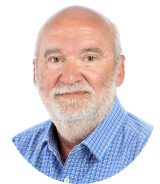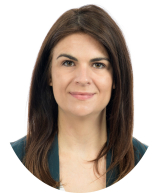The mission of the Pediatric Neurology Residency Program is to help each resident develop into an independent and competent Pediatric Neurologist. This is done through abundant clinical exposure in general Pediatric Neurology and in various sub-specialties, multiple didactic and formal teaching activities, and tailored coaching of the residents with the overall goal of gaining the necessary skills and knowledge in both scholar and non-scholar CanMEDS roles. In addition, the Pediatric Neurology Residency Program helps residents choose their career path and guide them regarding the necessary steps that must be done to achieve their goals. Moreover, our mission also includes maintaining a collegial, stimulating, and respectful working environment, with a constant dedication to providing the best clinical care to our patient population.
There are a number of highlights to the Pediatric Neurology Residency Program:
- High volume and wide spectrum of exposure, including consultations from the emergency department, neonatal and pediatric intensive care units, and inpatient wards.
- Wide range of highly specialized clinics including: Neurogenetics, Epilepsy, Neuromuscular, Neonatal Neurology, Demyelinating, Cerebral Palsy, Stroke, Brain Malformations, and Neuro-oncology.
- A team of 11 staff neurologists with a wide range of research interests including epilepsy, cerebral palsy, neuroinflammation, neuromuscular, brain malformations, neurogenetics, and neuro-oncology.
- Six-month research block, during which residents can initiate and complete a research project.
- Community neurology clinic rotations with a variety of sites in the Montreal area.
- A Resident Continuity Clinic in which each resident is responsible for following their own patients longitudinally, under the supervision of an identified faculty mentor.
- High volume of neurophysiology testing including EMG/NCS, outpatient EEG, inpatient video EEG monitoring.
- Excellent comprehensive epilepsy program, in collaboration with the neurosurgery program, with frequent vagus nerve stimulator implantations, stereotactic EEG implantations, and surgical treatment of drug-resistant epilepsy
- Integration with McGill Adult Neurology Residency Program
- High caliber academic Teaching Curriculum in General Neurology and Pediatric Neurology
Program length: 5 years
Training Requirements
The Pediatric Neurology Residency Program follows the training requirements set by the Royal College of Physicians and Surgeons (RCPSC).
In 1994, neurology was expanded to five years of postgraduate medical training. During the complete program, the clinical training is comprehensive and a strong emphasis is placed on the scientific basis of contemporary neurology. In 2020, the Competency by Design (CBD) curriculum was launched.
There is a Resident Continuity Clinic that starts in R2.
There are no mandatory rural rotations at this time.
A typical schedule is the following (1 block is 4 weeks):
PGY 1 - General Pediatrics |
||
|
Rotation |
Duration |
Location/Notes |
| General Pediatrics | 52 weeks | MCH |
PGY 2 |
||
|
Rotation |
Duration |
Location/Notes |
| Pediatric neurology (4 blocks), adult neurology (3 blocks), neurosurgery (2 blocks), genetics, neuroradiology, EEG, elective (2 blocks) | 52 weeks | JGH, MCH, MGH, MNH |
PGY 3 |
||
|
Rotation |
Duration |
Location/Notes |
| Research (4 blocks), Community neurology, Adult neurology (3 blocks), Neuro-oncology, Pediatric neurology (2 blocks), EMG, Elective. | 52 weeks | JGH, MCH, MGH, MNH |
PGY 4 |
||
|
Rotation |
Duration |
Location/Notes |
| Pediatric neurology (6 blocks, emphasis on clinics), Adult neurology, Neurogenetics, EMG, Neuroradiology, EEG, Research (2 blocks). | 52 weeks | JGH, MCH, MGH, MNH |
PGY 5 |
||
|
Rotation |
Duration |
Location/Notes |
| Pediatric neurology (6 blocks, including 2 junior attending, 3 clinics), Adult neurology (2 blocks), Community neurology, EMG, Electives (3 blocks). | 52 weeks | JGH, MCH, MGH, MNH |
Seminars |
||
| Four to six hours are spent in seminars, lectures and teaching sessions per week. There is a weekly pedagogical half-day, which all residents (pediatric and adult) attend, at which a variety of clinical and scientific topics are presented and discussed. In addition, there is a weekly teaching session on pediatric-neurology dedicated topics. There are weekly neuroradiology rounds and general neurology grand rounds. There is an addition an EEG round every two weeks and a weekly comprehensive epilepsy conference. There is a yearly Pediatric Neurology Education retreat for the residents on a pediatric neurology topic. | ||
Training Sites
Main site: Montreal Children's Hospital (MCH)/Glen Campus
The Montreal Children's Hospital (MCH) relocated to new state of the art facilities at the Glen campus in May 2015. The MCH has 2 in-patient video EEG monitoring beds. The Neurology consultation service is one of the busiest in the hospital, seeing large volumes of consults from the emergency department, neonatal and pediatric ICUs, and in-patient wards. There is an average of 6 consults per day.
The MCH has approximately 5000 out-patient clinical visits in neurology per year. This hospital offers a broad spectrum of general pediatric neurology and specialized and mutidisciplary clinics which include: Neurogenetics, Neuromuscular, Intractable epilepsy, Cerebral Palsy, Neonatal Neurology, Demyelinating disease, Brain malformation, and Developmental Delay clinics.
Weekly, there are: Neuroradiology rounds, General Neurology Grand Rounds, Pediatric Neurology Grand Rounds, Neurology Academic Half-day teaching and Pediatric Neurology dedicated teaching.
The residents have dedicated computers and desks, and have access to a large physical and electronic library of textbooks, journals and software sources.
Other sites:
The Montreal Neurological Institute-Hospital (the Neuro) in-patient service consists of the CTU of 16 beds (11 general neurology and 5 cerebrovascular disease), and the Seizure service (8 beds, 5 designated for monitoring). Residents are assigned to these two units as well as to the Consultation service that covers the Royal Victoria Hospital and its Emergency Department (about 1200 consults are seen per year). Also rotating through these services are residents from other specialties. Most patients seen in the Neuro are out-patients. There are many general neurology clinics as well as many specialty clinics, e.g., movement disorders, MS, ALS, neuropathy, neuromuscular, post-polio. Residents rotate through these. A full range of investigative facilities is available at the MNH including MRI, CT, PET, EEG, EMG; time spent in these laboratories is part of every resident's training. Exposure to the many neuroscientists of the Neuro is an important part of the training experience in this institution.
The Montreal General Hospital (MGH) has 15 neurology beds, two or three clinical residents and e to two laboratory residents, plus residents from internal medicine. Six hundred emergency patients per year. The MGH consists of an active clinical neurological service, concentrating on the neurological disorders seen in a large general hospital. In addition, there is a large and active neuroscience research unit.
The Jewish General Hospital (JGH) has an extremely active neurology consultation service. Consultation requests are mainly from the emergency room. House staff include 1-2 neurology residents plus one or more resident(s) from internal medicine or other programs. Residents see as many consultations as possible. There are approximately 2000 neurology referrals per year. There are teaching conferences in clinical neuroscience, neuroradiology, neuro-ophthalmology, and neuropathology. There is also an active Neuroscience Research Unit.
Residents have full access to McGill Health Sciences Library and Services. In addition, at each site there is a dedicated residents' computer with access to internet, hospital laboratory data, and medical imaging, plus a variety of software sources (e.g., NeuroBase).
Neurology at McGill is a university-wide program, with four participating hospitals: the Montreal Children's Hospital, the Montreal Neurological Hospital, the Montreal General Hospital, and the Jewish General Hospital. We aim to produce excellent clinical neurologists with a good grounding in the basic neurosciences. Trainees come from diverse backgrounds, educationally and culturally, including English and French Canada, the USA, and elsewhere in the world.





